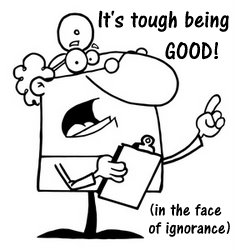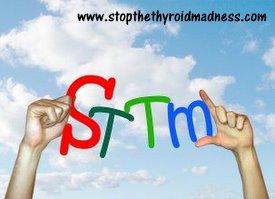Why iron is so important, milk thistle for RT3, and send the revised STTM book as a Christmas present!
NOTE: though this post was originally written in 2012, it has been updated to the present day and time! Enjoy!
 IRON AND ITS IMPORTANCEÂ
IRON AND ITS IMPORTANCEÂ
It all too common with hypothyroid patients: finding themselves with low iron levels.  I probably had insufficient iron my entire adult life, remembering that my doctors always told me I was borderline, yet nothing was done about it. So when I finally got on desiccated thyroid, and my iron needs increased due to better health, I finally fell into true anemia, and twice.  Miserable, let me tell you. I was breathless, achy, depressed and had horrific fatigue.
And why is iron so important?
- Iron carries oxygen from your tissues to your lungs (so if iron is low, you can be breathless and your heartrate has to go up in response to less oxygen. Link here.)
- Iron helps raise dopamine and serotonin in your brain (so if iron is low, you can feel depression or hyperactive i.e. attention-deficit hyperactivity disorder. Link here.)
- Iron assists with the cortisol secretion after ACTH stimulation (so if your iron is low, the cortisol secretion is decreased, lowering glucose in your cells, and that might cause the pooling of T3 in your blood. Link here.)
- Iron promotes good conversion of thyroid hormones T4 to T3 (so if iron is low, your storage iron T4 will build too high. Link here.)
- Iron balances your autonomic nervous sytem (so if your iron is low, you can end up in a frequent state of fight-or-flight with accompanying adrenaline surges and nervousness due to heightened sympathic activity. Link here.)
- Iron protects women from breast tumor growth (so if your iron is low, a benign tumor can become a malignant cancer tumor. Link here.)Â
- Iron improves your immune system (so if your iron is low, you are most susceptible to infections and illness. Link here.)
- Iron supports brain cell health (so if your iron is low, you can have brain cell death contributing to dementia and possibly Alzheimers. Link here.)
How to discern if your iron is too low
We used to think testing one’s storage iron, ferritin, was enough. But it’s not. Your storage iron can look normal because of an ongoing inflammation, which tends to thrust iron into storage. So we learned that we need four labs at the minimum : ferritin, % saturation, serum iron, and TIBC. Â Even low ferritin along with optimal results in the other labs have caused problems with T3 pooling in the blood. Â Go here to read what we look for in our iron results.
Raising poor iron levels
Hypothyroid patients tend to “dry up” and that also causes lowered levels of hydrochloric acid in the stomach, which lowers absorption. For better absorption, try adding 1 tsp to 1 tbsp of Braggs Apple Cider Vinegar to each large glass of water or juice you use to swallow your iron pills, or use Betaine, which is an OTC hydrochloric acid supplement.
To learn more, go to the following page. And for even more details, read the Odds and Ends chapter in the revised STTM book.
 CAN LIVER CLEANSES/SUPPORTS HELP IMPROVE YOUR RT3 RATIO??
CAN LIVER CLEANSES/SUPPORTS HELP IMPROVE YOUR RT3 RATIO??
Because of low iron or adrenal dysfunction, many thyroid patients have found themselves with high levels of Reverse T3…or more common, a poor RT3 ratio. And too much RT3 can mean the thyroid hormone T3 won’t adequately work in your cells, and you can feel miserable. The solution for most has been to switch to T3-only, but that can have a host of difficulties. Â It’s not easy to dose with T3 alone.
Recently, though, patients are discovering an alternative way to lower one’s excess RT3: the use of a good liver cleanse/support product, and most especially those with the herb called Milk Thistle. It’s an herb which, for hundreds of years, has been used as a liver tonic.  In supplements, it’s the milk thistle seeds which are used because they contain silymarin–the powerful part of the herb which does the trick.  And doses in the 400 mg’s of milk thistle extract supplements seem to be doing the trick, say patients who are reporting on it, taking it twice a day at 200 and 200 minimum. Some studies state you can go higher, if needed. Be careful with its use, as it can lower ferritin levels to some degree. But as long as you keep your serum iron levels up, you can get by with the lowering of ferritin for the short while you may be on Milk Thistle to lower RT3.
 HO! HO! HO! SEND THE REVISED STTM BOOK TO A FRIEND OR LOVED ONE FOR CHRISTMAS OR THE NEW YEAR!  It can be the BEST gift they will ever receive!  Go to the following page, and put in the name and address of the recipient, YOUR email, and the publishing company will get the book out to your special someone:  //www.laughinggrapepublishing.com/
HO! HO! HO! SEND THE REVISED STTM BOOK TO A FRIEND OR LOVED ONE FOR CHRISTMAS OR THE NEW YEAR!  It can be the BEST gift they will ever receive!  Go to the following page, and put in the name and address of the recipient, YOUR email, and the publishing company will get the book out to your special someone:  //www.laughinggrapepublishing.com/
  LISTEN TO ONE OF SEVERAL INTERVIEWS I’VE DONE LATELY…AND BOSTON IS NEXT! My next interview will be aired on WBZ-AM 1030 (Boston & New England) on the program called “Women’s Watch” with host Ellen Sherman. You can also listen live here: http://boston.cbslocal.com/station/wbz-news-radio/ No specific time as I am posting this, but it may happen next week. Watch the NTH Yahoo group, STTM Twitter and STTM Facebook groups for an announcement. And there are more to come thanks to a great publicist representing Stop the Thyroid Madness. Want to donate so she can continue helping us spread the word? Go here.  Janie can’t do it without you…and this is specifically to reach millions still on T4-only meds!
LISTEN TO ONE OF SEVERAL INTERVIEWS I’VE DONE LATELY…AND BOSTON IS NEXT! My next interview will be aired on WBZ-AM 1030 (Boston & New England) on the program called “Women’s Watch” with host Ellen Sherman. You can also listen live here: http://boston.cbslocal.com/station/wbz-news-radio/ No specific time as I am posting this, but it may happen next week. Watch the NTH Yahoo group, STTM Twitter and STTM Facebook groups for an announcement. And there are more to come thanks to a great publicist representing Stop the Thyroid Madness. Want to donate so she can continue helping us spread the word? Go here.  Janie can’t do it without you…and this is specifically to reach millions still on T4-only meds!
  STTM NOW HAS MANY FACEBOOK GROUPS!  See what Facebook has to offer you on top of already great Yahoo groups, here.
STTM NOW HAS MANY FACEBOOK GROUPS! Â See what Facebook has to offer you on top of already great Yahoo groups, here.
NOTE: if you are reading this via the email notification, and you want to comment on it, you’ll need to click on the title of this blog post to take you directly to the blog post. Then scroll down to comment. Â For those reading this on the actual blog, sign up to the left under the links.Â






